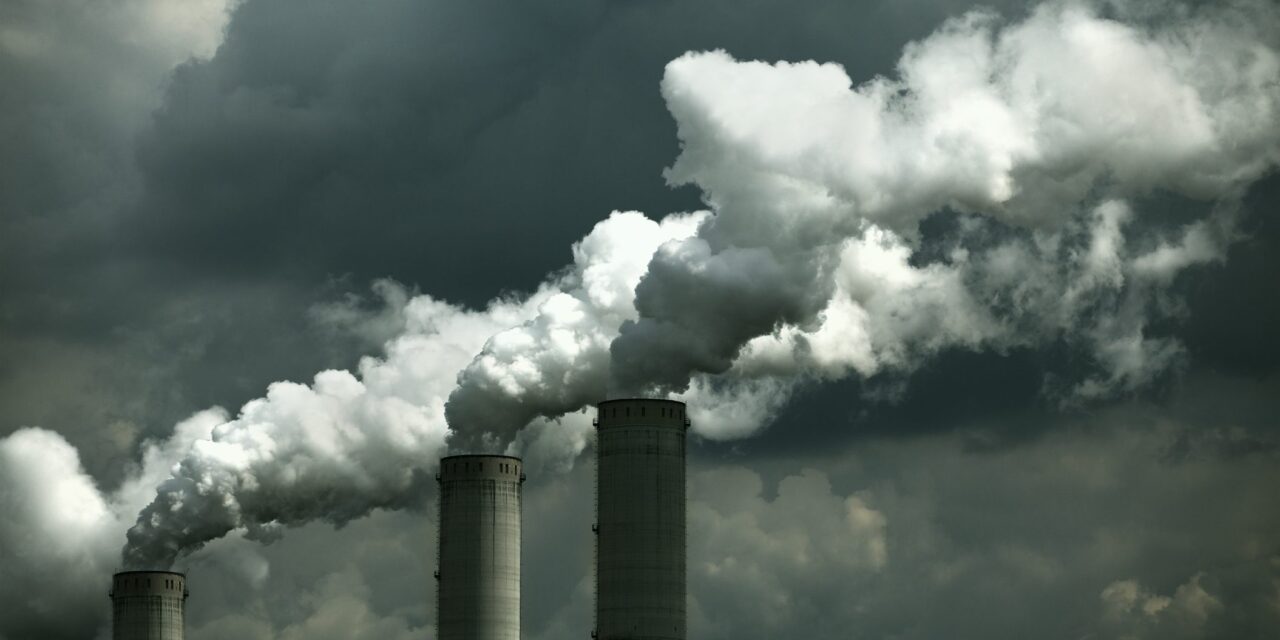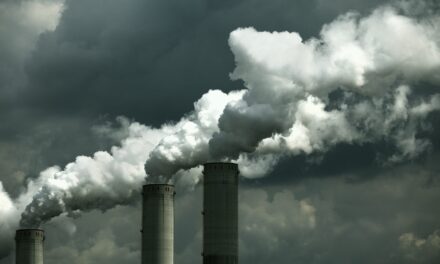It’s not often I refer people to a diary at Daily Kos (not even my own), but here is one I think you should read: How Climate Change Destroyed Our Civilization: A View From The Year 2373. Even more important, please take the time to read the essay on which that diary is based: “The Collapse of Western Civilization: A View from the Future,” by Naomi Oreskes & Erik M. Conway.
In that essay, the two authors, both of whim are historians of science, use the literary genre of science fiction to create the character of a historian two decades in the future looking back at our present age and its utter failure to “deal” with the issue of climate change. It’s a convenient but very effective technique for communicating the extent of the dilemma we, collectively, as human beings have created. A problem that far too many people are either unwilling to examine or simply fail to understand because of all the disinformation, bias and outright lies spread by corporate interests, corrupt governments and institutions and their media enablers.
Climate change is the greatest crisis of our time. Greater by far than terrorism or any current economic crisis. Unfortunately, it is not great entertainment, nor does it have the rating potential of other news stories. Climate change is not an action thriller like the Boston Bombing. It makes for poor television because the effects are widespread and occur, not over the period of a few hours to a few days, but over decades.
Yet, without a doubt, how we address this crisis will determine everything else that happens to humankind this century. It is not surprising that the Pentagon and other federal agencies have prepared strategic plans for the anticipated consequences of a rapidly changing climate. We already have experienced the extreme weather events predicted by climate models: drought, massive precipitation events, floods, heat waves, extreme storms, etc. We have documented the increased melting of glacial ice, sea ice and ice in the Arctic and Antarctic regions including Siberia and Greenland. We have documented the migration of species and the rise of infectious diseases in poorer nations that lack the infrastructure and governmental institutions necessary to combat them.
We are beginning to realize that in a world of seven billion people societal crises will become common including wars over ever more scarce resources: clean water and food. Experts are already acknowledging that the Arab Spring was in part triggered by food shortages. While climate change is not the sole cause of these events, it is a significant factor. International organizations estimate that in the present, millions of human deaths each year are directly attributable to climate change. Biologists have concluded that the ongoing extinction of species is one of the largest in earth’s history, and that climate change is also a significant contributor to the loss of biodiversity.
However, the media essentially ignores the issue of climate as do most of the governments in the world. The efforts being made to change human behavior to make our consumption of resources and use if energy more sustainable are dwarfed by the efforts of large multinational corporations and global financial institutions with a vested interest in maintaining the status quo, because their short term profits depend upon an ideology that posits unlimited growth and consumption despite the known fact that the resources necessary to maintain our current levels of consumption and economic “growth” on this planet are finite. An ideology that stresses unfettered and unregulated market exploitation of people and “commodities” over adaptation and conservation. An ideology as rigid and dogmatic in its belief structure as communism or religion. An ideology whose adherents are as brainwashed and resistant to changing their damaging and destructive beliefs in the face of all evidence to the contrary as any citizen of North Korea or member of a fundamentalist religious cult.
I do not blame the authors of this assay for employing a science fictional dystopian narrative to attempt to awaken people to the dangers we face from our continued destruction of the planet in the name of consumerism, unlimited and unregulated economic growth and all the other practices and tenets of free market capitalism. For the last two centuries we have witnessed the rise of this ideology, which at its heart is based on the values of selfishness and greed and the complete disregard of the “collateral damage” it creates.
Capitalism taken to its extreme is as destructive a process as any other in history, particularly at this point in our human history. It is ill suited to providing solutions by itself to the problems that exist because the assumptions upon which it is based, i.e,. that all people behave in large groups or small as rational actors, that regulation of the market is invariably harmful and that collective action by governments or other quasi-governmental organizations cannot succeed are false. Indeed, the very idea that this ideology has created the crisis we face is ridiculed and dismissed out of hand, and denied as strongly as the Catholic Church denied the that a large number of its priests were predatory pedophiles.
Thus, what we need to do to awaken people to the dangers of climate change is a counter-narrative, just as what we need to do to awaken people to the crisis of unregulated markets and wealth inequality also requires a counter narrative. The bare facts are not enough to loosen the stranglehold that large corporations and their ideological fellow travelers have on, not only our governments and institutions, but also on the basic beliefs and assumptions held by literally billions of people around the world, beliefs neatly packaged in a narrative that has come to dominate the global community since the Industrial revolution.
I am not a fire-eating Marxist (far from it), but it doesn’t take a genius to understand that only collective and concerted action by nations and peoples around the world hold out any hope for moderating the effects of climate change and transforming our societies into ones that value sustainability and biodiversity over corporate greed, fundamentalist economics and governmental inertia. Only the dissemination of counter-narratives promoting those values and laying out the consequences of failing to adopt them can accomplish that goal.





